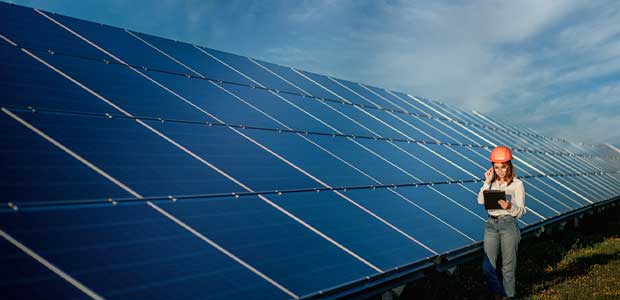
Environment Benefits of Solar Panels
These devices can decrease emissions, improve air quality and limit global warming.
- By Rachel Pruette
- Nov 18, 2022
The clean energy movement is stronger now than ever before, and solar adoption is a massive part of reducing the world’s carbon footprint and limiting our reliance on fossil fuels. Although solar technology is far from new—having been developed in the 1950s—many people still don’t understand the massive benefits solar panels can have on the environment.
In this article, we’ll be discussing how solar panels improve the environment, limit pollution and reduce carbon production around the world.
Solar Panels Reduce Emissions and Pollution
Solar energy is considered a renewable energy, as it offers electricity from a virtually unending source—the sun. When you install solar panels on your home, in most cases, you’re able to generate enough electricity for on-site use that you don’t need to pull any energy from the grid.
Electric companies most often use fossil fuels to produce energy to power homes through the grid. When fuels like crude oil and natural gas are burned, they generate carbon dioxide, which is the primary greenhouse gas responsible for global warming.
Additionally, burning fossil fuels emits nitrogen oxides into the air. These compounds contribute to smog and general pollution, which is detrimental to plant and animal life.
Since solar panels reduce your reliance on fossil fuels by providing clean energy, they help reduce nitrogen and carbon emissions that are harmful to the environment.
Solar Panels Help Limit Global Warming
As mentioned above, using solar energy to power your home reduces the amount of carbon dioxide released into the air from the burning of fossil fuels. Since carbon dioxide accumulation gradually causes the global temperature to increase, converting to solar means you’ll limit your contribution to global warming.
There are several implications related to reducing your carbon footprint. Experts believe that global warming will gradually lead to rising sea levels, which can be catastrophic for a number of reasons. Higher temperatures will put added strain on countless animal and plant species that haven’t adapted to live in more extreme temperatures. Extreme weather events are also more likely as global temperatures rise, which can be disastrous on their own.
Somewhat counterintuitively, global warming can eventually throw the planet into drastic temperature swings in both directions, which could lead to another ice age. For obvious reasons, this would change the world and life as we know it.
Solar Has Less of an Impact on Water Sources Than Fossil Fuels
One benefit of converting to solar that many homeowners fail to realize is that no water is required to generate solar power. Power plants that use natural gas and crude oil to generate electricity use massive amounts of water in the power production process, usually to cool equipment. In contrast, rooftop solar panels require no water for the production or management of energy.
As you know, water is mandatory to sustain life, but it’s also required for virtually all production throughout the world, including food production, manufacturing and more. Droughts are becoming more and more common and severe in many parts of the country, so water conservation is more crucial now than ever before.
Plus, taking water—the most precious resource required for life—away from plants and wildlife will always put undue stress on the environment and can potentially lead to certain species becoming endangered or extinct.
Solar Helps Improve Air Quality
Lastly, converting to solar helps to improve general air quality. The fewer fossil fuels we burn for energy, the fewer pollutants are released into the air. As mentioned above, pollution can put a strain on the environment in general, but it also contributes to more issues with lung health in humans and other animals.
According to the EPA, the air has gotten cleaner since the 1990s, likely due, in part, to the increased adoption of solar energy and environmentally-friendly business practices. Generally speaking, adopting solar helps keep the world a safe and healthy place for future generations to thrive.
Wrapping Up: Why Solar Is Great for Promoting Environmental Friendliness
Solar energy isn’t the only renewable energy source that is helping to make the planet a cleaner and safer place to live—there’s also wind energy, biomass, hydroelectric power, and other sources that contribute to a healthier environment. However, solar is one of the easiest and most accessible forms of renewable energy for individual homeowners to adopt.
Provided you choose one of the best solar companies in your area that has a trusted reputation, you can get a complete solar array installed on your home, save thousands of dollars on your energy bills, and do your part to promote a healthy, sustainable future.